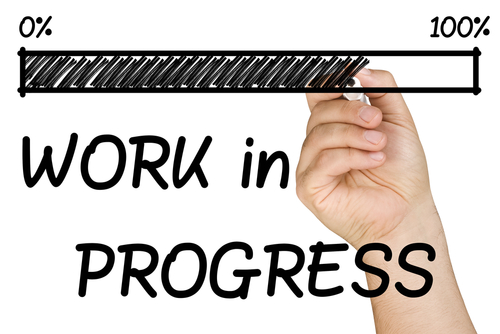Epizyme plans to ask the U.S. Food and Drug Administration (FDA) for accelerated approval of tazemetostat as a treatment for people with relapsed or refractory follicular lymphoma with or without EZH2 activating mutations.
The decision follows several meetings with the FDA, where the possibility of a New Drug Application (NDA) submission for follicular lymphoma based on the current patient population in the ongoing Phase 2 clinical trial was discussed. Epizyme plans to request the approval in the fourth quarter of 2019.
“Defining a clear path to a regulatory submission for tazemetostat for this patient population marks a huge step forward for patients and an opportunity to change the course of follicular lymphoma treatment,” Shefali Agarwal, MD, chief medical officer of Epizyme, said in a press release. “If successful, tazemetostat is poised to be the first commercially available EZH2 inhibitor.
“We look forward to advancing our submission preparations and further engaging with FDA as we work expeditiously to bring tazemetostat to the patients who need it.”
Tazemetostat (formerly known as EPZ-6438) is an oral inhibitor of EZH2, a protein that is often overproduced in cancer and induces changes in the DNA that affect which genes are turned on or off. By inhibiting EZH2, tazemetostat inhibits these changes and prevents cancer cells from growing.
The ongoing Phase 2 study (NCT01897571) has completed patient enrollment, and includes 99 follicular lymphoma patients — 45 with EZH2 activating mutations and 54 without – who previously have been treated with two or more systemic therapies.
In the trial, 71% of patients with EZH2 mutations and 33% of those with normal EZH2 responded to the treatment, and an additional 29% and 31% of patients achieved disease stabilization after receiving tazemetostat.
Results presented at June’s European Hematology Association (EHA) 2018 Annual Meeting also showed that patients responded to the treatment for a median of 76 weeks and remained alive and without signs of disease worsening for a median of 30 weeks.
These are encouraging numbers for a population of patients generally less likely to respond to new treatment options.
Based on the discussions with the FDA, the data collected from this patient population is expected to provide the information required for an NDA submission and accelerated approval of tazemetostat.
Epizyme is also planning a confirmatory clinical program as part of the accelerated approval strategy. This is designed to further demonstrate the therapeutic activity of tazemetostat for this population, and to expand its use as a potential second-line treatment for follicular lymphoma.
Supported by the promising safety and efficacy of tazemetostat when given as a standalone treatment, the company is also planning to test its potential in combination with other available therapies, including Rituxan (rituximab, marketed by Genetech) and Revlimid (lenalidomide, by Celgene).
In addition, Epizyme is considering exploring a combination of tazemetostat plus R-CHOP chemotherapy in follicular lymphoma patients, after the combination was deemed safe and effective in diffuse large B-cell lymphoma (DLBCL) patients in a Phase 1/2 trial (NCT02889523) — 87% of patients achieved a complete metabolic response.
“Tazemetostat has the potential to generate significant value for the patients and physicians who need new treatment options,” said Robert Bazemore, president and CEO of Epizyme. “I am proud of what we have accomplished, and look forward to what is ahead as we transition to a commercial-stage company that can truly have an impact on patients.”


